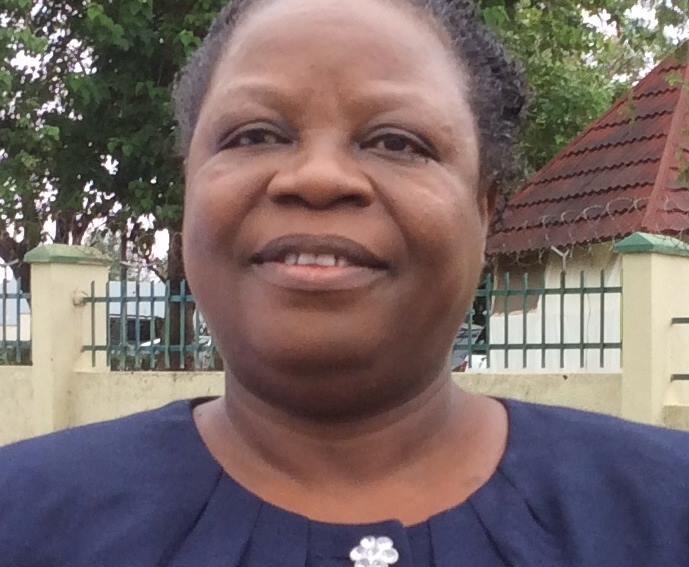Veteran journalist and former General Manager, (News/ Current Affairs) of DAAR Communications, Funke Fadugba, who retired last year after over 30 years in journalism, has recounted her close shave with death while in service and unionism.
The first female secretary and chairman of the Nigeria Union of Journalists (NUJ) in Lagos State, who spoke to Daily Sun recently, decried the non-payment of salaries by some media owners to journalists.
How did you take to journalism?
I became a journalist by accident but I fell in love with it the moment I started practicing. I came into journalism after secondary school in Ibadan, Oyo State. My father, who retired as a police officer and became a politician in Lagos, facilitated it through one of his political leaders. The man then took me to Lagos Radio, where I started work.
Can you recall your experiences as a female journalist?
It was not very tough but not rosy either. I can say that it may have been the way I comported myself during assignments. While on the job, I did not see myself any different from my male counterparts.
I was never assaulted. People accorded me great respect. I have no regrets spending a good part of my life working as a journalist.
What would you have been if you were not a journalist?
I would have been a lawyer, but at that time I had a beclouded idea of who a lawyer was. I thank God for leading me into journalism through which I have also contributed my quota to my fatherland.
Non-payment of journalists' salaries by some media owners has been an issue over the years. What do you make of it?
We tried our best when we were at the helm of affairs at the NUJ. It is very sad. When other professionals failed to receive their salaries as at when due, journalists would fight for them, but no one cries for the media to be properly remunerated. God is the only one who will help us out.
As Lagos NUJ chairman, what were your efforts in reviving the moribund Media Practitioners Enhancement Bill?
We also did our best. When Smart Adeyemi was the president, we submitted a bill to the National Assembly. Unfortunately, it suffered a setback. I had thought that when Adeyemi became a senator, he would have dusted it up and used his clout among his colleagues to present it all over again. That would have helped us. We would have been able to use the law to help media practitioners get their rights as appropriate.
What are your unforgettable moments as a journalist?
There were occasions that would forever remain in my memory. One of them was the day I trekked from Alausa to Agege as a correspondent at the Governor's Office, Alausa, during Baba Lateef Jakande's era and was carrying the six-month pregnancy of my first son. I can't really remember what happened, but I remember what I normally describe as "the great trek".
One of my unforgettable days was during the coup that toppled Major General Muhammadu Buhari's regime and brought Major General Ibrahim Babangida into power as head of state on August 27, 1985. As the duty editor at the Lagos Radio, I had no choice than to report for duty, even though I heard that there was a coup d'etat. The love for journalism and the fear that I would be sacked if I did not report for duty dominated my mind. I got to the Radio Lagos complex safely with my husband who was behind the wheel. There I met a certain Lt. Colonel, who led the team to the station.
I incurred his wrath when I burst into laughter after sighting my colleagues, including former Permanent Secretary, Lekan Ogunbanwo, at the back of the counter. The action did not go down well with the officer, who ordered me to kneel down and threatened to shoot me. I remember very well that he told me: "God saved you, I would have killed you."
While we were behind the counter, he asked us to pray along with them that the coup plotters should announce the new head of state early enough, or else all of us would be killed. By the time the coup plotters announced Babangida as new head of state, we were jubilating, even though we did not know anyone among the new officers. The army officer later told us that if there had been a counter-coup, we would have been killed that day.
Another day was in unionism. When I wanted to be the president of the NUJ. I travelled to Maiduguri for the campaign and got to Maiduguri by air and went to Yobe by road. On my way to Adamawa, I was answering a telephone call innocently as we got to a military checkpoint and this infuriated the leader of the team. He stopped our cab, pulled me out and threatened to kill me. I got to know later that it was against military rules for any civilian to make telephone calls around checkpoints. In the course of my journalism career, I also had several terrible experiences including spiritual attacks, but I thank God that I am alive to narrate them.




No comments:
Post a Comment